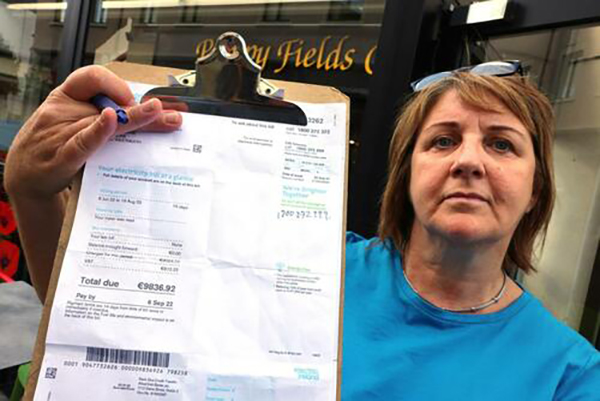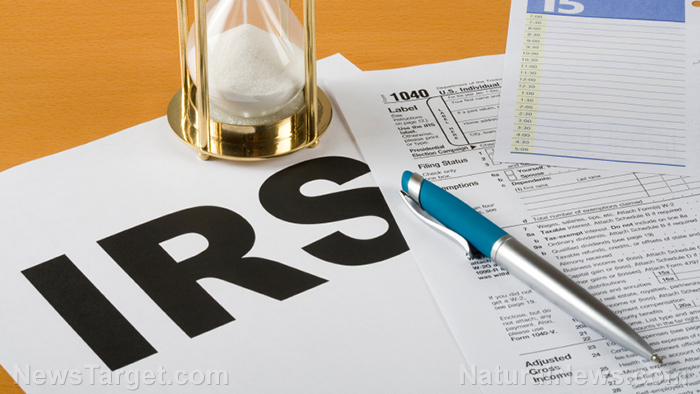Bank of Japan is buying up it’s own government’s debt: Bond holdings top 50% for first time
07/04/2022 / By Cassie B.

The share of Japanese government bonds that are held by the Bank of Japan has now exceeded 50 percent. The record-setting high comes as the central bank doubles down on its government debt purchases with the aim of holding down long-term interest rates as part of its ultra-loose monetary policy.
The Bank of Japan’s move to buy up Japanese government bonds is leading to a series of distortions within the bond market. These include an inverted yield curve that sees the interest rate on certain short-term bonds exceeding that of long-term bonds. It is also accelerating the depreciation of the Japanese yen against other currencies.
The bank’s purchase of government bonds without preset limits is in keeping with its policy of capping long-term interest rates at roughly 0.25 percent. As long-term interest rates continue to rise in Europe and the U.S., upward pressure is being placed on rates in Japan, forcing the bank to buy significant volumes of bonds.
In June, the Bank of Japan bought Japanese government bonds worth 14.8 trillion yen, which greatly exceeded the previous largest monthly total, recorded in November of 2002 of 11.1 trillion yen. The QUICK database shows that the outstanding value for long-term Japanese government bonds on June 20 was 1,021.1 trillion yen. The Bank of Japan held 514.9 trillion yen of this amount on a face-value basis, which represents 50.4 percent of the total outstanding amount.
When Bank of Japan Governor Haruhiko Kuroda began a monetary easing program in 2013, the country’s central bank’s government bond holdings were in the 10 percent range. They have continued to grow since then, and if the trend continues, the Bank of Japan could be on track to own the whole bond market within the next 10 years.

A few years ago, the International Monetary Fund determined that if the Bank of Japan were to hold 40 percent the bond market, it would result in a broken market. That day has now come, and there are days where not a single trade crosses.
It doesn’t look like there is any end in sight, however, as the Bank of Japan would need to raise its government bond holdings by 120 trillion yen from the present level of 500 trillion yen if it wants long-term interest rates to stay at 0.25 percent.
Is the Japanese economy headed for collapse?
There are already signs in the market that the bank could lose control of the situation and fail to maintain the current measures controlling interest rates. This could cause a disastrous move lower in the market and spur a hyperinflation collapse of the yen and the economy at large.
Japan’s actions are in stark contrast to the moves made by other central banks around the world. For example, at the end of March, the Federal Reserve’s holdings of U.S. government bonds were reportedly in the range of 20 percent, and quantitative tightening got underway in June to decrease its holdings of assets like government bonds. In Europe, meanwhile, the European Central Bank’s ratio is hovering around 30 percent; the ECB plans to stop its quantitative easing program of buying government bonds in July.
Meanwhile, the deepening gap between the interest rates in Japan and those in the U.S and Europe is causing the yen to drop in value. It hit a 24-year low against the U.S. dollar earlier this month, extending losses that had already seen the Japanese currency lose more than 18 percent of its value against the USD this year. There are signs that it could drop even further, creating additional stress on the Japanese economy.
Sources for this article include:
Submit a correction >>
Tagged Under:
bank of Japan, bonds, Collapse, debt, debt bomb, economic collapse, economics, finance, government bonds, Inflation, Japan, Japanese economy, money, risk, yen
This article may contain statements that reflect the opinion of the author
RECENT NEWS & ARTICLES
COPYRIGHT © 2017 COLLAPSE.NEWS
All content posted on this site is protected under Free Speech. Collapse.news is not responsible for content written by contributing authors. The information on this site is provided for educational and entertainment purposes only. It is not intended as a substitute for professional advice of any kind. Collapse.news assumes no responsibility for the use or misuse of this material. All trademarks, registered trademarks and service marks mentioned on this site are the property of their respective owners.





















